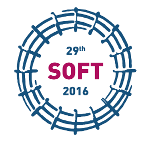Speaker
Romain Sibois
(Remote Operation and Virtual Reality)
Description
The next European fusion reactor after ITER is called DEMO. The development implementing ITER experiences has taken place within EUROfusion Programme. One of the reactor maintenance system development tasks has been focused on Divertor Maintenance system. The maintenance of DEMO involving handling hazardous components shall be carried out remotely such as the installation and removal of the Divertor area. In order to perform the installation and removal of the critical in-vessel components of DEMO, dedicated RH devices shall be developed to carry out remote operations. Plant availability is one of the top level requirements for DEMO, therefore maintenance reliability and effectivity are critical issues. This paper suggests an innovative method for quantitatively assessing the reliability of RH concept design.
The method described in this paper aims to support the engineers during the design process for quantitatively assessing different design options based on a predictive reliability approach. High level operational sequence of the RH operation is modelled as a stochastic Petri Net. Reliability of different concept is obtained and compared to determine which concept is more reliable regarding a particular task, subtask or the entire remote handling sequence.
Finally the paper presents the quantitative results of the different remote handling concept designs for two potential DEMO maintenance port configurations. Benefits of such method used during the conceptual design phase of complex systems such as in DEMO remote maintenance operations are mentioned and further development of such method are also discussed in the conclusion of this paper.
The work behind this paper takes place in the DEMO Remote Maintenance Project activities implemented under the EUROFusion Consortium. The purpose of the work package concentrating on divertor maintenance was to study and develop technical solutions for Divertor RM and perform concept evaluation based on remote maintenance point of view.
Co-author
Romain Sibois
(Remote Operation and Virtual Reality, VTT Technical Research Centre of Finland, Tampere, Finland)

